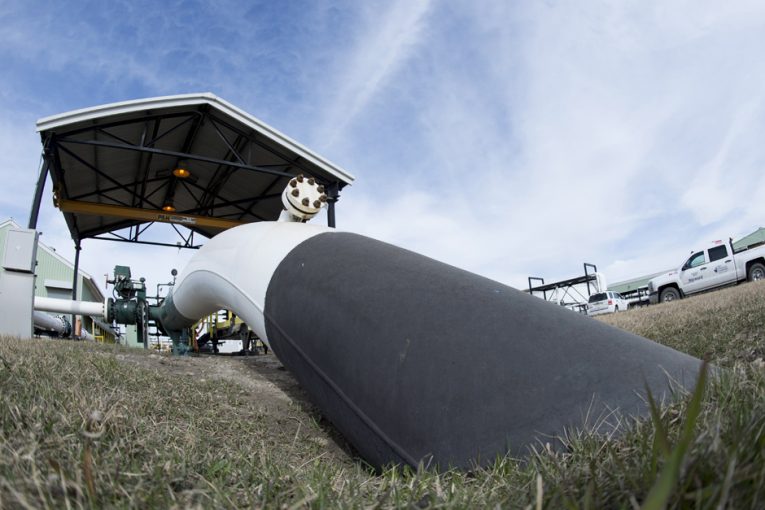
The National Energy Board said Thursday it would start hearings in Alberta in November to finalize the detailed route of the Trans Mountain pipeline expansion, a step that moves the controversial, $7.4 billion project closer to construction.
Hearings on the British Columbia segments of the route will be held in 2018, the regulator said.
“It’s an essential part of our process after the project was found to be in the public interest,” Bob Steedman, the NEB’s chief environment officer, said in an interview.
“The next step was to thread the detailed route through all the properties involved in the approved corridor … this is just working through the business of building infrastructure in a busy landscape.”
On Wednesday, the NEB said Kinder Morgan Canada had met all NEB conditions to start construction to expand the pipeline’s Westridge Marine Terminal in Burnaby, B.C., where no further hearings are required because the company owns the property. That’s where the company plans to start the project’s construction, which will unfold in phases.
Kinder Morgan Canada received federal government approval in November, 2016, to twin its existing 1,147-kilometre Trans Mountain pipeline system and provide a new market for Alberta oil in Asia. The project would increase Trans Mountain’s shipping capacity from 300,000 barrels a day to 890,000.
The federal permit involves a 150-metre corridor. The detailed hearings narrow down the best location within that corridor, as well as methods or timing of construction, and tend to move quickly, Steedman said.
The NEB received 452 statements of opposition related to the proposed route, including five from Indigenous groups and 121 from landowners.
Steedman said there are statements of opposition on all seven segments of the pipeline, though the most contentious are in B.C.’s Lower Mainland, where development has surrounded the project since its origin in the 1950s.
The plan is unfolding in the face of outrage from British Columbia’s new NDP government, which has vowed to use all available tools to stop the pipeline expansion, and threats of large demonstrations from environmental organizations and Indigenous communities.
In a parallel process, Indigenous communities and municipalities are challenging the federal permit before the Federal Court of Appeal. The court granted B.C.’s new NDP government intervenor status on Tuesday.
However, the court “criticized the (B.C. government) application on a number of fronts — for its five-week delay in the ‘closely-managed, expedited proceeding,’ a lack of scope of the intervention, and no mention of the submission and argument British Columbia intends to advance as an intervenor in the proceedings,” Global Public Affairs, a government relations consultancy that follows the project, said in a report to clients Thursday.
As well, “the Federal Court of Appeal judge scolded the provincial government for its ‘blasé’ approach to the case since assuming power … (and said) B.C. cannot advance new arguments or issues, bring politics into the case, and/or be late again in submissions.”
Steedman said he couldn’t comment on whether Kinder Morgan Canada will deliver on its plan to complete the project in 2019.
“Because they are putting big infrastructure through private land and Indigenous territories, it’s complicated,” he said. “That is just the nature of our business.”
You can read more of the news on source
